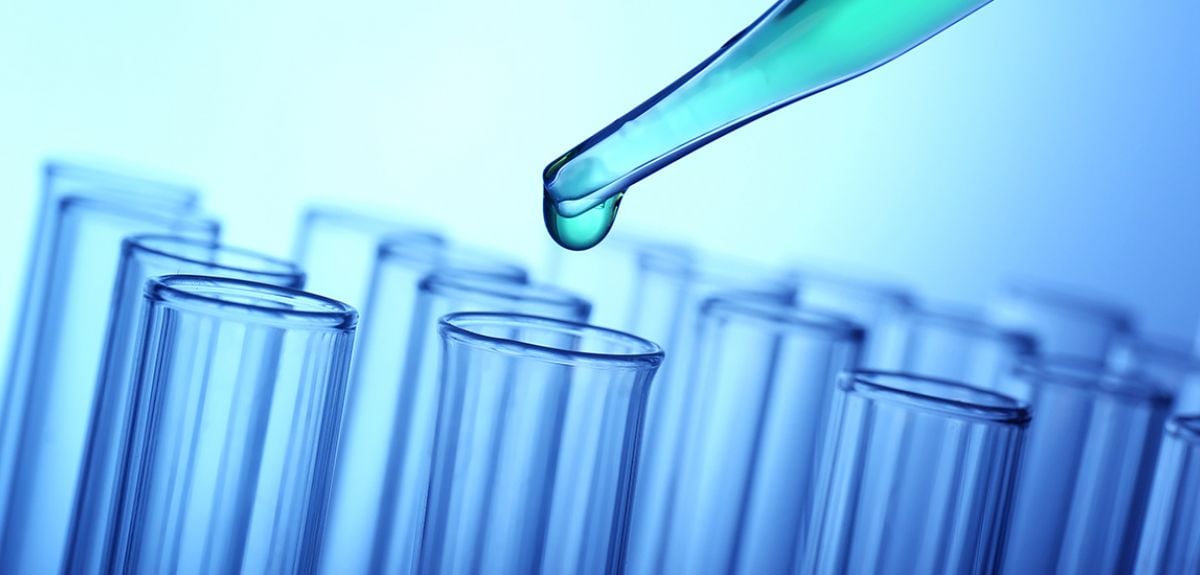
Credit: Shutterstock
Oxford University researchers release cheap, quick COVID-19 antibody test
The new easy-to-produce test detects coronavirus spike-protein binding antibodies in people who have tested positive for COVID-19.
An international research team led by Oxford University scientists has developed a portable test for antibodies that fight the novel coronavirus that causes COVID-19.
The test, which spots the presence of virus-fighting antibodies rather than a coronavirus infection, can be adapted to work on blood from a finger prick – making it quick and easy to use. The research team, which includes scientists from Taiwan, India, Thailand and France, as well as UK university and NHS researchers, trialled the test on patients with COVID-19, but now hope to adapt it to identify those who have successfully generated antibodies after a vaccine, versus those who may need a booster.
The scientists also hope that the large-scale use of their tests might help researchers and policy-makers track levels of protective immunity in the community.
Antibodies are large proteins that lock onto and help the body’s immune system fight off disease-causing organisms, such as the novel coronavirus that causes COVID-19. Both infection with the virus and vaccines can generate antibodies.
There are already several commercial tests, which can detect whether someone has antibodies against the novel coronavirus, but these tests are expensive and usually need a central laboratory to analyse them. This is especially a problem in low-income countries.
Study lead Professor Alain Townsend from the MRC Human Immunology Unit at Oxford University said: 'Our test is very cheap to produce, so we are using existing funding from charitable donations to offer 10 million tests for research purposes to countries that cannot support very high-tech solutions.'
The test relies on linking a part of the viral spike protein to the surface of red blood cells. When antibodies to the virus are present they create a clump of red blood cells. This clump is big enough to be seen by eye.

The test also does not require any special equipment or take a long time to show the results, and is accurate: “It correctly identifies coronavirus spike protein antibodies 90% of the time, with less than a 1% false positive rate.”
Professor Townsend said: “All we need to do is mix a low-cost reagent with a small blood sample, and the clumping of the red cells after one hour shows whether the blood sample contained antibodies against the novel coronavirus or not.”
The Townsend-Jeantet charitable trust, run by Professor Townsend, will fund the production of sufficient reagent for 10 million test wells by an Oxford company Absolute Antibody.
Professor Townsend said: “We are already distributing our test reagent to researchers who need them anywhere in the world, free of charge. So far, we supplied our tests to researchers in twenty-one different countries, with major studies using our antibody test in Norway, Colombia, Taiwan and Sri Lanka.”
The team have also developed new versions of the reagent that that can test for antibodies to the new variant viruses through a recent generous donation from a local donor.
For ease of use so that the tests can be carried out in a variety of locations, even in your own home. The researchers note that they can be adapted to work using blood from a finger prick sample. They now plan to use this very simple test in future trials to see if it can identify those who are protected against COVID-19 from those who may need a booster vaccination.
Professor Alison Simmons, Director of the MRC Human Immunology Unit at Oxford University, said: “This study and the research developments by the team are a very valuable asset to our toolbox in our fight against the novel coronavirus. With better ways of testing antibody levels and understanding immune defences of individuals and across populations, we increasingly take steps towards being able to protect more people globally and control spread of the virus.”
 Oxford tops QS World University Rankings in English, anatomy and geography
Oxford tops QS World University Rankings in English, anatomy and geography
 Latest results from 20+ year Oxford study reveals ongoing impacts of global crises on young people
Latest results from 20+ year Oxford study reveals ongoing impacts of global crises on young people
 New research reveals psychological ‘booster shots’ can strengthen resistance to misinformation
New research reveals psychological ‘booster shots’ can strengthen resistance to misinformation
 Oxford researcher reveals hidden Alfred Tennyson text using innovative imaging techniques
Oxford researcher reveals hidden Alfred Tennyson text using innovative imaging techniques